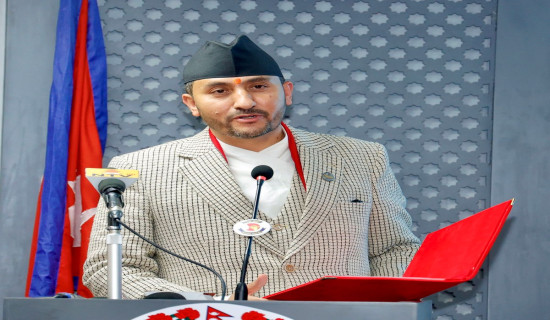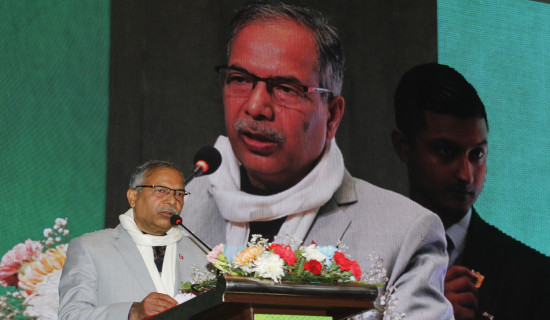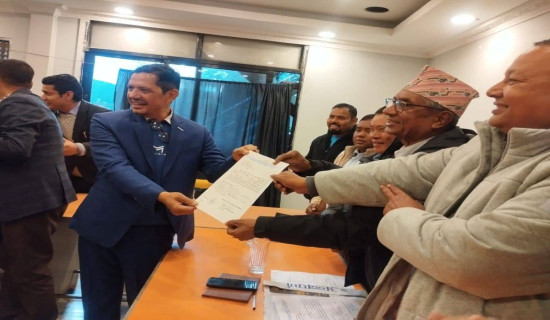- Sunday, 18 January 2026
Reorienting Social Science Education
It is deplorable that social science education, which once was hailed as the backbone of society, has now been neglected, both by the state and society. It is not that the budget has been cut – it is not even possible – but the educational authorities do not explain the value of social science education well. Nor do the parents bother to listen to understand its worth, let alone the children. Surprisingly, some think the national human/social science education investment is a waste.
One of several reasons for indifference to social science education is that our education policy is chiefly to produce job-oriented graduates. Consequently, education has been lopsided, and national development has lagged behind. This is more than unfortunate.
Two major streams
Previously education was broadly divided into two main streams – arts and science. While the former focused on humans and their artifacts, the latter was chiefly a study of the earth – its outer surface, underlying structure, the phenomena around it, and even beyond. What we now call human/social sciences and natural sciences as two main streams are the essential divisions of study. There is no reason not to feel proud to read and understand the core values of humanity, which can only sustain our civilisation and culture.
This educational divide is not based on binary opposition, however. Nor does it remain in two watertight compartments. Most of the study today has been interdisciplinary, linking one science with the other. What we call geography is both social and natural science, for example. So is economics which is in the borderland of social and natural science. So, it is difficult to strictly separate one discipline from the other, like we sometimes feel difficulty separating wheat and chaff. The connection between disciplines is thus beginning to be inextricable, so much so that even mathematics and literature are curiously linked. It seems everything is related to everything else.
In the context of growing interlinkage between the disciplines, social science education has been an indispensable part of the study, without which even technology cannot be studied well, let alone pure single disciplines of science. Unfortunately, however, we have not been able to pay heed to the value of social science education in Nepal. Now is the time to restructure social science education with a new dimension. The higher education institutions in Nepal have classified human/social sciences into various subjects – from fine arts to sociology.
All disciplines are essential, but three are prominent – political science, economics, and anthropology/ sociology. These are the subjects that are directly related to life.
Some people in our country tend to disparage political science as nothing but an art of speaking, which any trained political actor can more effectively do. Yes, a political leader can speak eloquently – many such world leaders like Winston Churchill and Martin Luther King Jr had such qualities. But it is one thing to act as a politician and another to be a political scientist who understands what is meant by politics and has the critical faculty of the mind. In a sense, nothing is beyond politics in human society. George Orwell’s famous expression “There is no escape to politics” is still as appealing today as when it was uttered in the mid-twentieth century.
Likewise, economics is another subject that directly impacts life. Here again, some people might argue that life equally runs whether one knows economics or not. This is another example of half-intelligence. To earn for simple livelihood is one thing, but to use limited resources for the maximum benefit is another. Indeed, the well-versed person in economics can use their resources to maximise utility. They can also protect themselves from being deceived by a swindler.
Similarly, anthropology/sociology is yet another important subject of study in a higher education institution. Anthropology is the study of humans – from origin and development to all actions done so far by humans. It studies the cultures of different communities living separately or together in any part of the world. Sociology goes beyond and studies society – its structures and functions. It analyses the characteristics of different societies, which helps us understand how to live happily.
Tribhuvan University has played a significant role in development of education in the country. It still covers nearly 80 per cent of the educated population in the country. Many TU graduates are administrators, teachers, doctors, engineers, and business holders working at home and abroad. TU has structured higher education into a faculty and institute system where four streams are faculties, and the other five are institutes. More than 20 subjects are grouped under the Faculty of Humanities and Social Sciences, which spends a considerable amount of TU, but the graduates in this stream are not satisfied because they think they cannot get any job in the market. Why is it that they have not got jobs? What has gone away?
School system
One of several reasons for this might be that the course contents, teaching methods, and evaluation systems of human/social sciences have long been obsolete. It may not be misleading to say that the contents, methods, and evaluations have been almost the same at TU for the last six decades since its inception. There can be two remedies to rectify the situation. First, different disciplines under human/social sciences should be regrouped to suit the changing context, and second, contents, methods, and evaluation systems should be revised accordingly.
Many universities around the world have adopted the policy and practice of the school system instead of the faculty and institute system, but we have been following the same for a long time. Recently a group of experts has formally suggested that TU should structure human/social science education under the school of fine arts, school of language and literature, school of economics and development, etc.
This recommendation is contextual. However, simply regrouping subjects under different schools does not suffice. The course contents must be updated, the methods must include field studies, and the evaluation must be product-oriented.
(The author is the chairman of Molung Foundation.)
















-original-thumb.jpg)